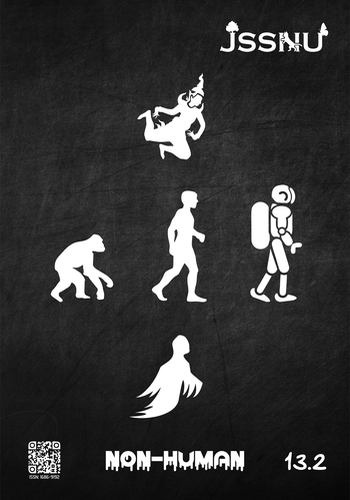On Political Ecology Questioning Globalization: A Reflection Starting from Bruno Latour and Philippe Descola
Main Article Content
Abstract
This paper develops a reflection about political ecology starting from Bruno Latour's and Descola's research. I explore the work of these two present-day scholars in order to delve into their ideas that are useful to rethink political ecology in relation to globalization. I combine and supplement Latour's reflection on the modern, political ecology, and politics of nature, with Descola's work about the ways in which humans are associated with nonhumans. I identify two key concepts, representativeness and composition, that can be employed to cross their research in order to figure out how political ecology can question the supposed universality of the modern idea of nature that is spread by globalization across the world. Being relevant for the growing interdisciplinary field of the environmental humanities and social sciences, especially the debate about the idea of Anthropocene, this paper can be a point of reference to mould alternative perspectives on ecological issues by broadening the horizon of political ecology in a way that it can question globalization without indirectly facilitating any kind of isolationism.
Downloads
Article Details
References
Descola, P. (2010). Diversité des Natures, Diversité des Cultures. Paris: Bayard.
Descola, P. (2013a). Beyond Nature and Culture. (J. Lloyd, trans.). Chicago: University of Chicago Press.
Descola, P. (2013b). The Ecology of Others: Anthropology and the Question of Nature. (G. Godbout & B. P. Luley, trans.). Chicago: Prickly Paradigm Press.
Descola, P. (2014). Modes of being and forms of predication. HAU: Journal of Ethnographic Theory, 4 (1): 271-280.
Descola, P. and Charbonnier, P. (2014). La Composition des Mondes: Entretiens avec Pierre Charbonnier. Paris: Flammarion.
Descola, P. and Ingold, T. (2014). Être au Monde: Quelle Expérience Commune? Débat Présenté par Michel Lussault. Lyon: Presses universitaires de Lyon.
Keucheyan, R. (2014). La Nature Est un Champ de Bataille: Essai d'Écologie Politique. Paris: Zones (Éditions la Découverte).
Larrère, C., & Larrère, R. (2015). Penser et Agir Avec la Nature: Une Enquête Philosophique. Paris: La Découverte.
Larrère, C., Schmid, L., & Fressard, O. (2013). L’Écologie est Politique. Paris: Les Petits Matins.
Latour, B. (1993). We Have Never Been Modern. (C. Porter, trans.). Cambridge/ Massachusetts: Harvard University Press.
Latour, B. (2003). Un Monde Pluriel Mais Commun (Entretiens avec F. Ewald). La Tour d’Aigues: Editions de l'Aube.
Latour, B. (2004). Politics of Nature. How to Bring the Sciences into Democracy. (C. Porter, trans.). Cambridge/Massachusetts: Harvard University Press.
Latour, B. (2005). Reassembling the Social: An Introduction to Actor-Network-Theory. Oxford/New York: Oxford University Press.
Latour, B. (2011). Politics of Nature: East and West Perspectives. Ethics & Global Politics, 4 (1): 71-80.
Latour, B. (2015). Face à Gaïa: Huit Conférences sur le Nouveau Régime Climatique. Paris: Éditions La Découverte.
Palsson, G, Szerszynski, B, Sörlin, S, Marks, J, Avril, B, Crumley, C, Hackmann, H, Holm, P, Ingram, J, Kirman A., Pardo Buendía, M., & Wee huizen, R. (2013). Reconceptualizing the ‘Anthropos’ in the Anthropocene: Integrating the social sciences and humanities in global environmental change research. Environmental Science & Policy, 28: 3-13.
Rose, D. B., van Dooren, T., Chrulew, M., Cooke, S., Kearnes, M., & O'Gor man, E. (2012). Thinking through the environment, unsettling the humanities. Environmental Humanities, 1:1-5


